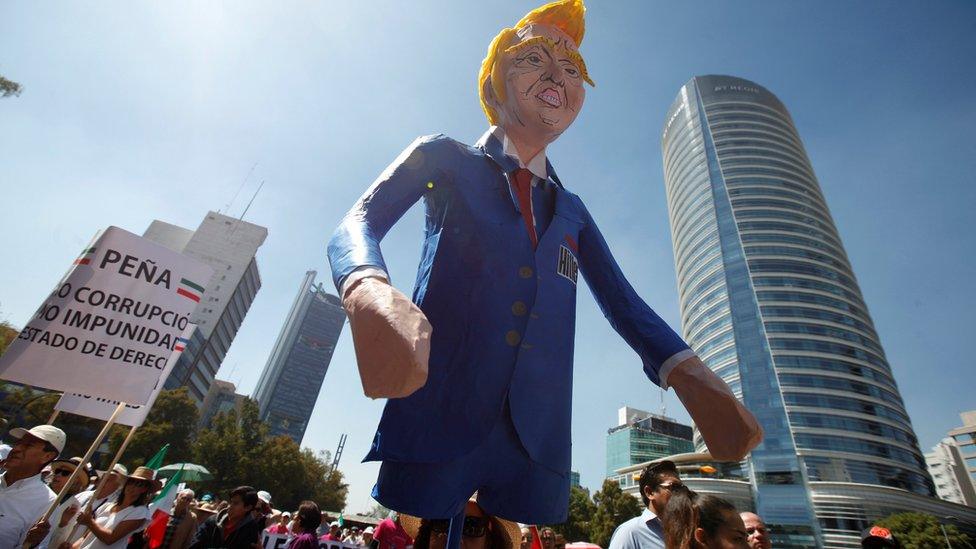Living in fear of President Trump's deportation drive
- Published
'Trump is deporting our parents'
In the early evening in a Hispanic township near Brownsville, Texas, curtains begin to draw, the streets are empty and the playground lies still.
"Everyone locks their doors, they're scared," said Maria, who came to America illegally from Mexico 23 years ago. "We close blinds. It looks like a wasteland."
Maria is one of an estimated 11 million "undocumented immigrants", many of whom have lived in the US for decades, and have American-born children.
The lives of many undocumented residents of Texas' Rio Grande valley have changed dramatically since President Trump took office with his pledge to crack down on illegal immigrants.
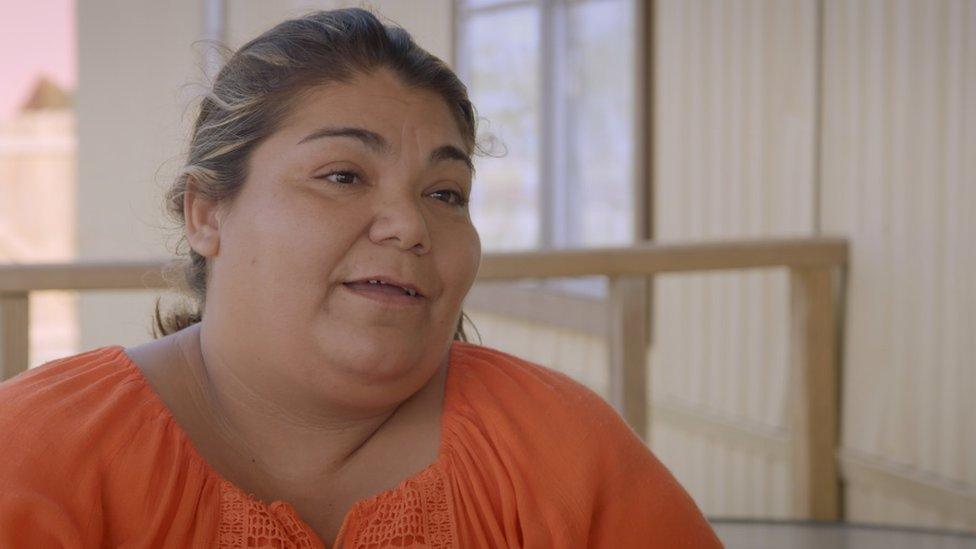
Maria is afraid to walk her son to the school bus in the mornings
Maria's 16-year-old daughter, Stephanie, is sitting slumped in her chair in the garden moaning quietly. Stephanie, a US citizen, has cerebral palsy and is also plagued by high fevers the local doctors can't explain.
Her doctor says it's imperative that she sees a specialist doctor in Corpus Christi, 160 miles away.
But that would involve driving through a Border Patrol immigration checkpoint.
Maria does not dare risk the drive.
"We're scared that her condition is going to deteriorate", said Maria. "But what I'm scared of is that I'll cross a check point and then who's going to take care of my children?"
Afraid to go to school
Maria is also afraid to walk her son Joseph, nine, to the school bus in the mornings.
Many of the mothers along her street peer through curtains as their children walk to the bus, texting each other updates on each child's progress as they walk down the street on their own.
This takes a toll on Joseph, also a US citizen, who is now afraid to go to school at all.
"I tell him: 'It's OK love, you go to that bus,'" said Maria. "But he's told me I'm scared I'm going to come back and you're not going to be in the house."
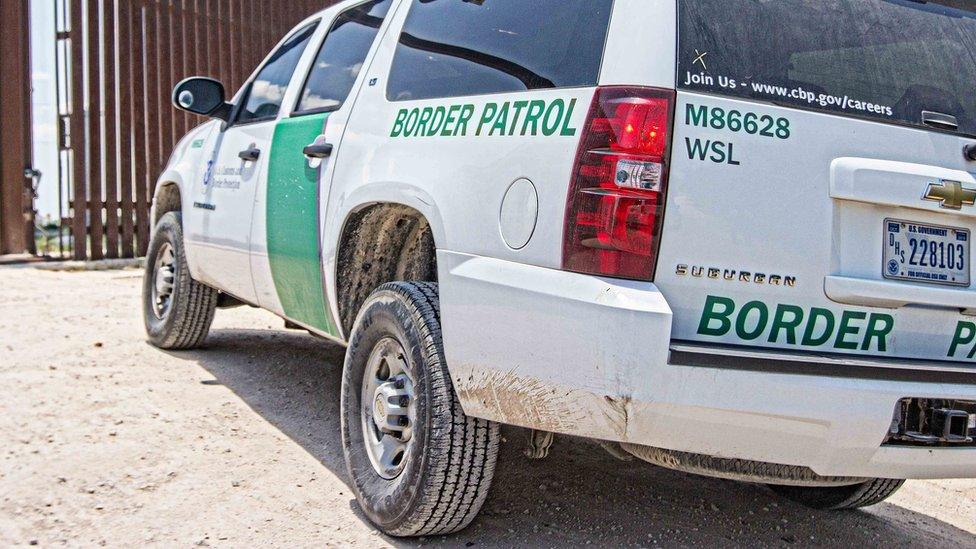
Undocumented immigrants live in fear of border patrol officials
Compounding the fear of undocumented Hispanics in Texas is a new state law, Senate Bill 4 or "SB4".
Traditionally in the US, the police don't enforce immigration law. They leave that to the immigration authorities.
But the SB4 bans police departments throughout the state from adopting a policy of non co-operation with America's immigration authorities.
The law is widely expected to lead to police officers throughout Texas asking those they suspect of being illegal for their immigration papers during routine police stops.
The new law in Texas does not come into effect until September, and is currently being challenged. But that has done little to dampen the widespread alarm amongst Texas' 10 million Hispanics.
BBC Panorama flies along with the US border to witness "the Trump effect"
Bad hombres?
During the election campaign, President Trump promised to oust millions of undocumented people, at one point controversially casting most of them as criminals. Later, he pledged to deport the criminals first.
The crackdown actually predates the new president and has been going on for years. President Barack Obama deported around three million, more than any recent president.
But shortly after taking office, President Trump scrapped his predecessor's priority list for deportations, which had put criminals at the top.
President Trump then issued his own executive orders making criminals and non-criminals an equal priority for deportation.
In his first 100 days in office, 41,000 known or suspected illegal immigrants were deported, most of them criminals.
But the number of those deported who had no criminal record more than doubled compared to the same period in 2016, to over 10,000.
President Trump also recently scrapped the protections President Obama's administration offered to undocumented parents who were law-abiding.
"Nobody wants families split and the way to ensure that if you're a family is to not come to this country illegally" said Jim Brulte, the Chairman of the Republican Party in California.
"Sometimes the sins of the father are visited upon the sons" he said.
Home alone
A routine night patrol for Pinal County police in Arizona turns into a man hunt
Almost 2,000 miles from Maria's house in a neighbourhood in San Diego, California, the Duarte family have felt the impact of this policy change.
The Duarte children were getting ready for school one Tuesday morning in May, when Border Patrol agents arrested both of their parents and took them to an immigrant detention centre.
"We just sat down and cried," said Yarely Duarte, 12.
The first night, Yarely and her twin sister Aracely moved their beds into the same room as their two teenage brothers, for comfort.
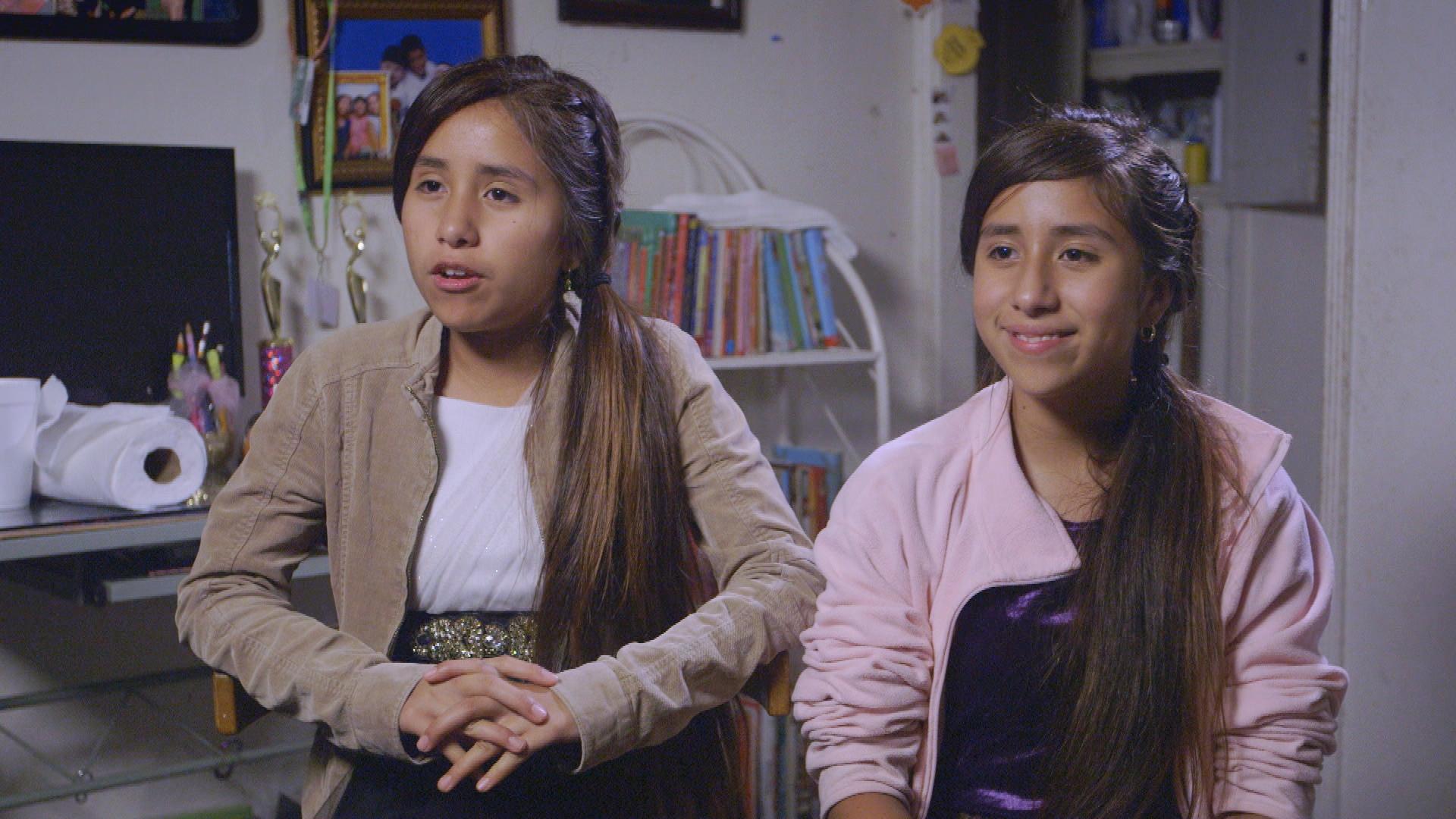
Twins Yarely and Aracely, 12, have been looked after by their older brother since their parents were arrested.
The oldest brother Francisco, 19, took charge - cooking, buying the food and helping get his younger sisters off to school.
Border Patrol initially accused parents Rosenda and Francisco Duarte Snr of involvement in international human trafficking, but later dropped the accusation. Neither parent has a criminal record.
Rosenda Duarte was released from detention on bail in late June while her case is reassessed. But she and her husband, who is still in detention, still face possible deportation.
Mark Lane, who gives legal advice to other scared immigrants in the community, said he gets 10 to 15 calls a day.
He said: "We had one family that we're dealing with over the last two months. They've taken three separate members of the family. It's happening all over."
Signing away children
Back in Brownsville, Texas, Maria is now preparing to sign custody of her children over to her sister in case she is deported.
She doesn't want to risk her children, Stephanie and Joseph, being left alone, or being put into foster care.
Hundreds of other undocumented parents across America are making alternative custody arrangements for their children, as President Trump's crackdown on undocumented immigrants gets under way.
For decades, neither political party in America has been able to solve the problem of the 11 million undocumented immigrants.
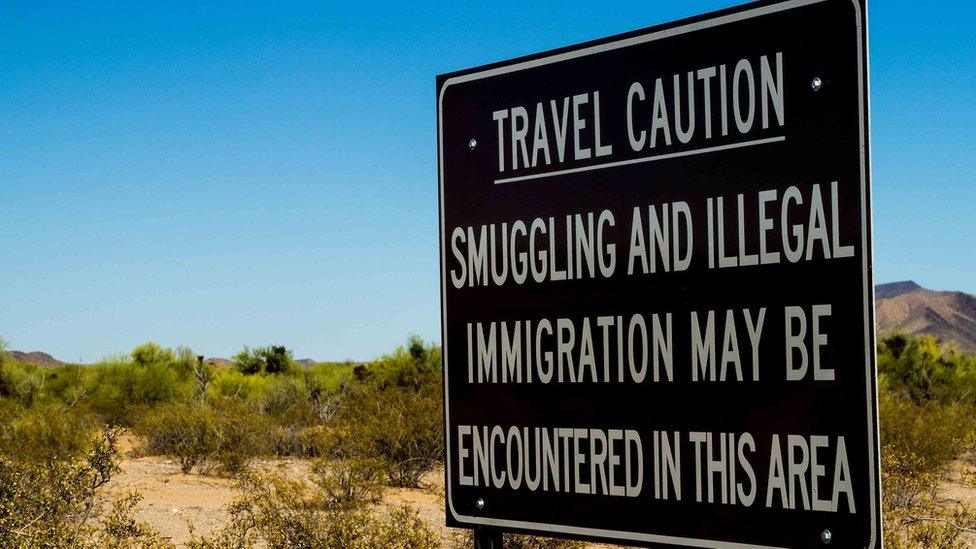
Many Republicans want the existing law, which calls for the removal of all undocumented immigrants, to be enforced.
Many Democrats want to offer the majority who are non-criminals a chance to become US citizens.
Republicans generally oppose this, and many want to see the existing law, which requires the removal of all illegal immigrants, enforced.
"There's not much of a choice when it comes to enforcing the law," said Timothy Robbins, acting chief of staff of US Immigration and Customs Enforcement.
"At times, there are going to be families that are separated. It's very, very difficult especially for the children but the reality is our officers are going to enforce the law."
Watch BBC Panorama: Trump's Fortress America on Monday 17 July on BBC One at 20:30 BST and afterwards on iPlayer.
- Published22 June 2017
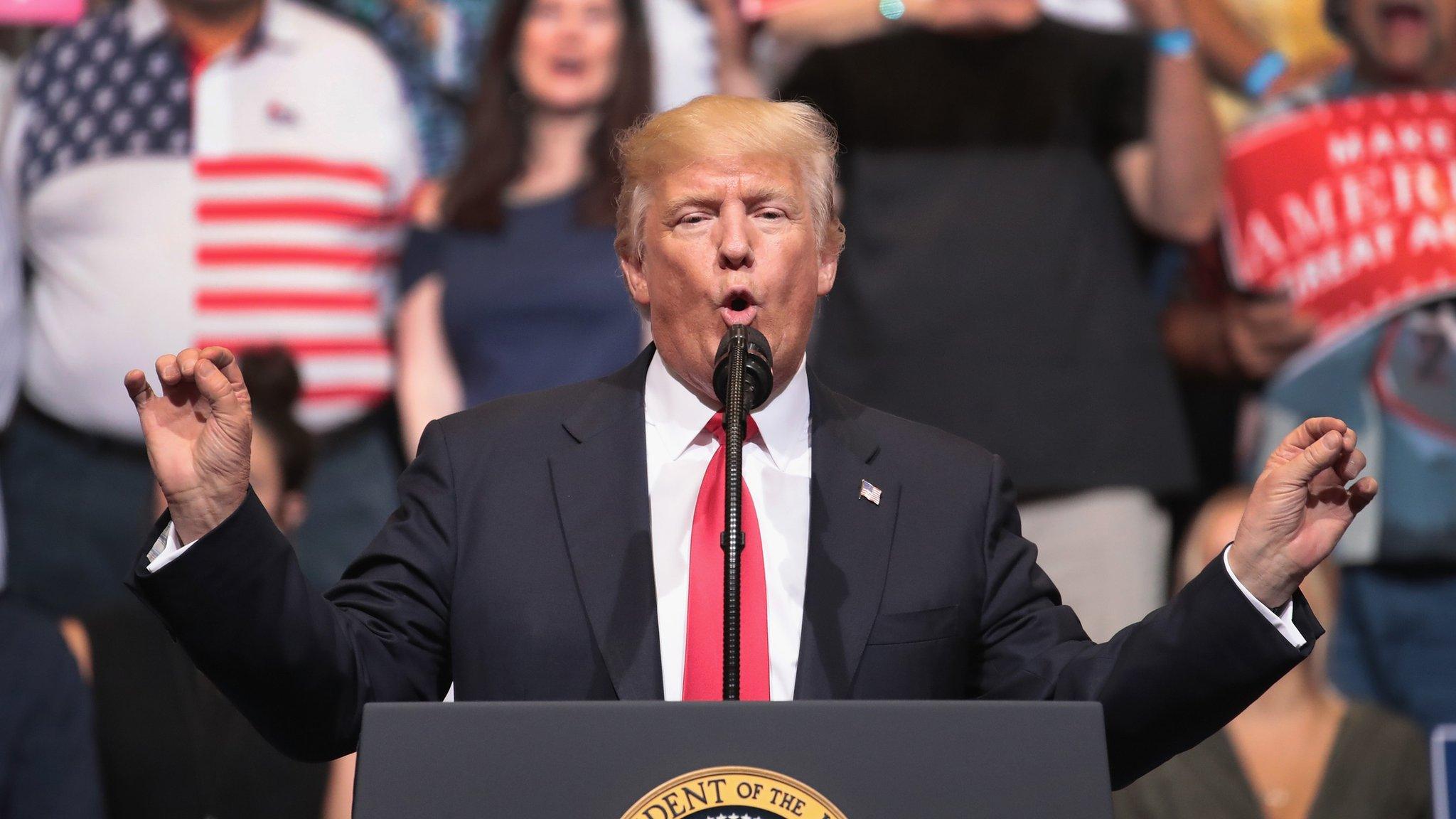
- Published18 May 2017
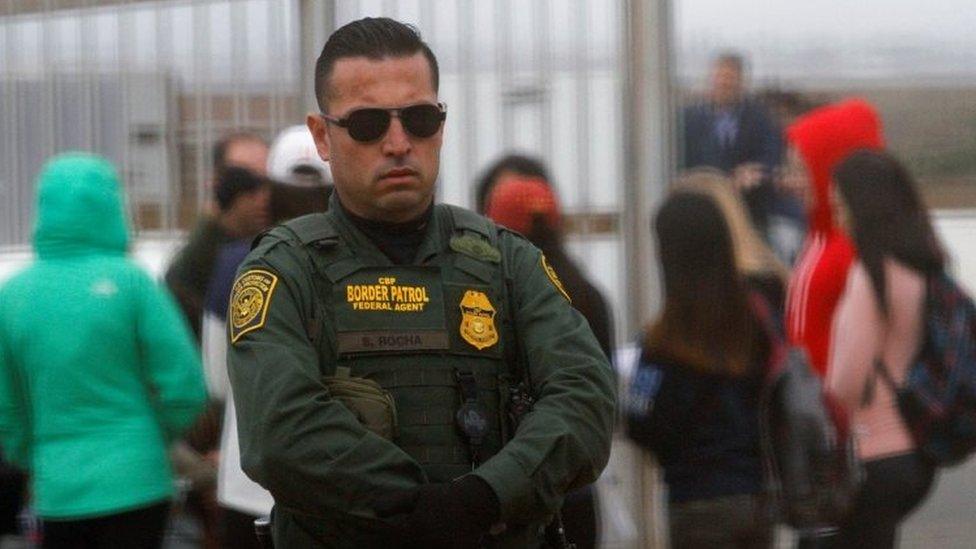
- Published26 April 2017
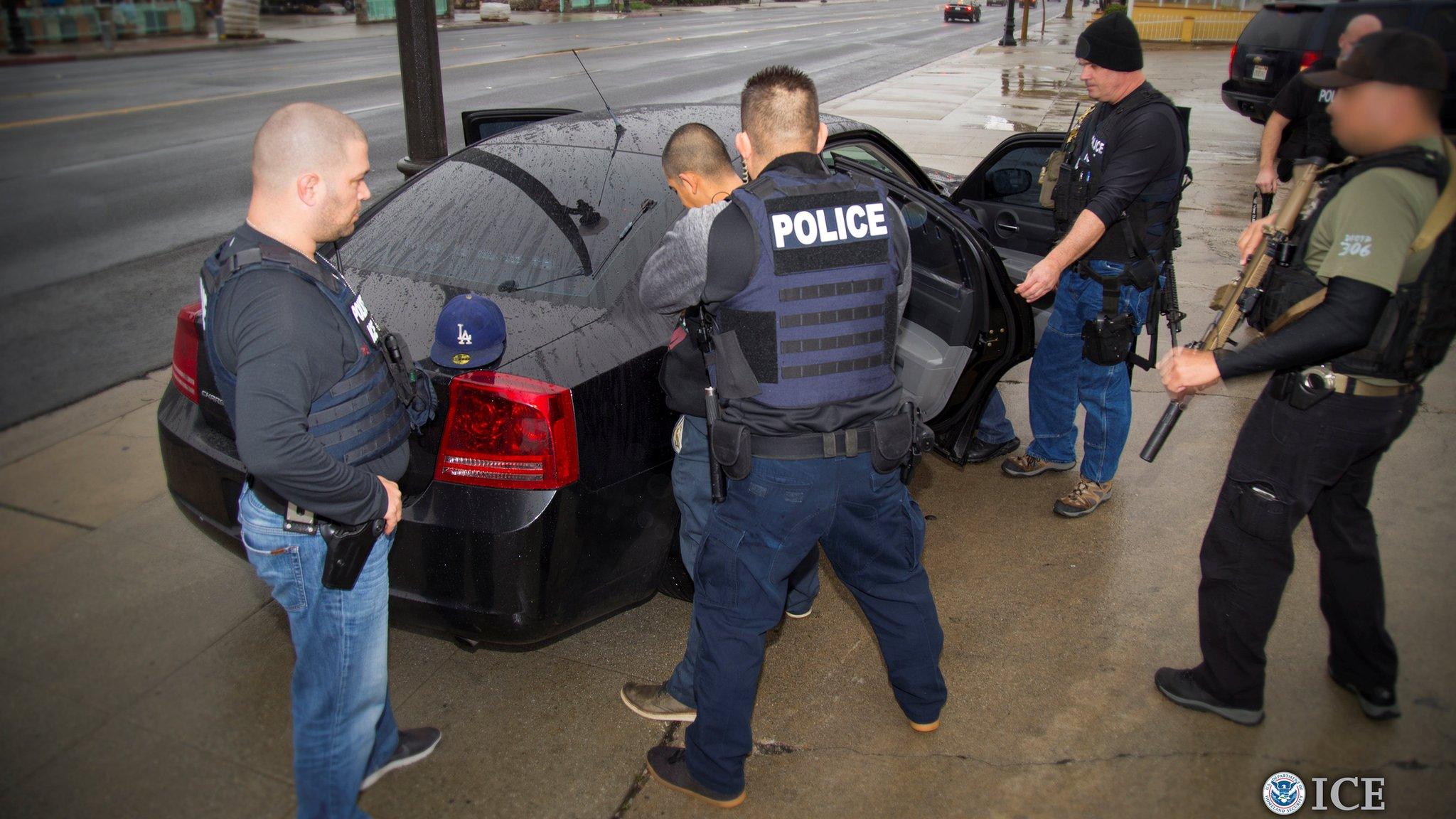
- Published13 February 2017
